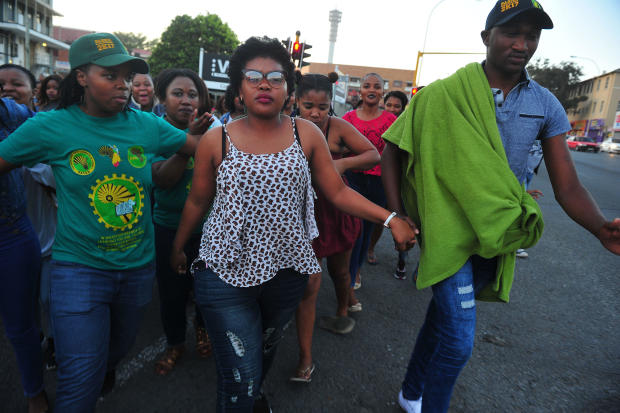An Error Had Resulted in $1 Million of Student Loan Funds Getting into an Account Belonging to a Student Who Spent Almost $1,000 Per Day on Luxury Goods

Due to a clerical error, nearly a million dollars of student aid were dumped into a South African student’s bank account resulting in months of lavish spending.
The South African college student named Sibongile Mani was sentenced to prison this week, according to a CBS news report.

In court, the former second-year accounting student Sibongile Mani stood defiantly in court with her hands folded in anger after being sentenced to five years in prison for defrauding the National Student Financial Aid Scheme.
On June 1, 2017, a clerical error resulted in close to $1 million being transferred into her account instead of a $96 monthly food allowance.
Mani was found guilty of stealing the funds by Judge Twanette Olivier and sentenced to prison, along with a stinging admonition.
“You, and yourself, made the decision on June 1, 2017, and you did so repeatedly for 73 consecutive days, numerous times per day,” the judge said to Mani in court.
A total of close to $1,000 was spent every day on handbags, alcohol, and clothing before officials could notice the error on August 13 and took action.
Other students at Walter Sisulu University said they became suspicious of Mani’s sudden change in lifestyle and blew the whistle on her scheme. It was said that she suddenly transformed into a glamorous woman with an expensive weave, a new iPhone, and a penchant for expensive whiskey.
Mani had “malicious intent” according to the judge, who noted that she had spent a considerable amount of money every day at 48 stores located across the country.
Mani attended Walther Sisulu University at the time, and Judge Olivier claimed 585 students who relied on this fund would suffer themselves if the company that distributed the funds had not repaid the money Mani spent.
It was Mani’s claim that she did not know the details of the loan agreement and never intended to take money earmarked for other needy students.
The judge rejected her version of events, stating that the money was not spent on essential items to stay alive, but by greed, rather than necessity.
Her parole eligibility will be determined after serving one-third of her five-year sentence.
Many callers voicing outrage since the sentence was handed down have dominated South African headlines and radio talk shows.
